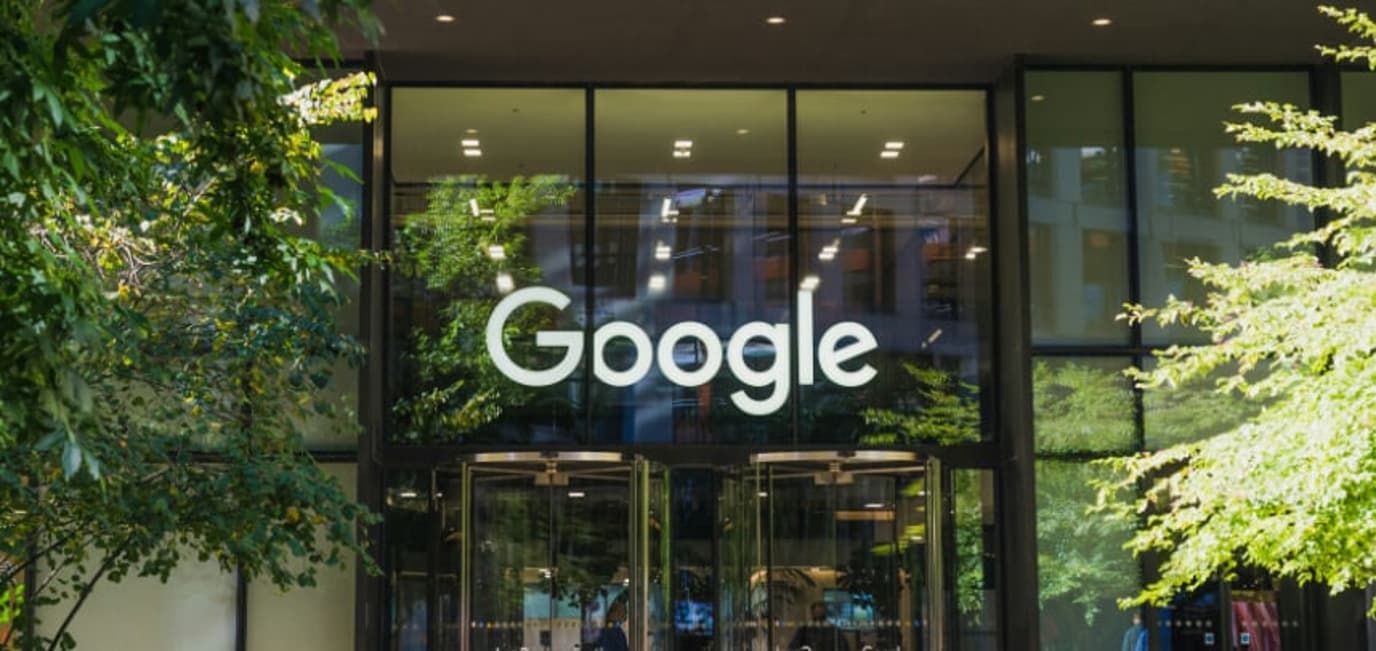
Content refers to anything from blog posts, videos, social media posts, podcasts, and more. It is about creating valuable and engaging material for an audience to consume. With the rise of artificial intelligence (AI) in recent years, the digital landscape has shifted and it is likely to bring significant changes in some of these areas. The question is, should companies start to think differently about content and how can they leverage these new tools themselves to help grow sales?
Content ranking on Google
 Google has been at the forefront of the AI discussion for many years. Back in 2015, they took their first step into the space with RankBrain, which helped the search take big steps forward in understanding language usage. Since then they have integrated a variety of other tools such as neural matching, BERT and MUM. These tools help the search perform better by understanding the context and intent behind a user’s search behaviour.
Google has been at the forefront of the AI discussion for many years. Back in 2015, they took their first step into the space with RankBrain, which helped the search take big steps forward in understanding language usage. Since then they have integrated a variety of other tools such as neural matching, BERT and MUM. These tools help the search perform better by understanding the context and intent behind a user’s search behaviour.
These were designed to help users get better results for their specific needs. At the start of 2023, Google released their next step forward with Bard, which looks set to fundamentally change the space again. Bard is an experimental conversational tool, designed to deliver answers found across the internet. It effectively judges the reliability of sources and thereby reducing the need for research on multiple sites. It also means users don’t necessarily need to visit other websites in order to get the answers they need.

So, does this mean that content is no longer king? Not necessarily. Content is still essential, but the quality of the content matters more than ever. It’s not just about stuffing your blog post with keywords or producing low-quality content just to tick off the SEO box – you need to create well-researched content that provides value and answers your audience’s questions, then works to convert those users into customers in this new domain.
So, how to manage this change? Well perhaps by using AI tools ourselves we can create content that services this audience better…
The rise of GPTs
GPT (generative pre-trained transformer) tools are one of the most popular and fastest-growing AI tools, with Chat GPT being the most well-known and widely used. Given a prompt, Chat GPT is able to achieve staggering results in creating well-written long-form content. The project was originally created by using humans to test the language model, provide feedback and help it improve. This allowed it to develop a powerful and robust algorithm over a number of years, and it now offers the opportunity for companies to create high-quality, engaging content that is optimised for search engines, leading to increased traffic and conversions.
Let’s take look at the specific ways Chat GPT and other AI tools being used in marketing content and SEO:
- Content creation: Chat GPT is an advanced language model that can generate human-like text, making it possible to create content in a fraction of the time it would take a human writer. It can analyse search data, identify trending topics, and suggest content ideas that are relevant and engaging to the target audience.
- Content optimisation: It can analyse text and suggest changes to improve its relevance and visibility in search results. It can also be used to create meta descriptions and title tags that are optimised for search engines.
- Personalisation: AI-powered chatbots are becoming increasingly popular as a way to personalise the customer experience. These chatbots can use machine learning algorithms to understand the customer’s preferences and tailor their responses accordingly. Chat GPT can be used to create chatbots that are more intelligent and personalised than ever before.
- Data analysis: AI-powered tools can also analyse data to identify patterns and trends. This information can be used to improve content and SEO strategies, leading to better results over time.
- Voice search: As more and more people use voice search to find information online, AI-powered tools are becoming increasingly important. Chat GPT can be used to create voice-activated chatbots that can answer customer questions and provide information.
How AI will disrupt the labour market
Looking beyond just marketing, this month Cornell University published a paper which explored the effect that GPT’s (large language model AI tools) will have across various professions in the US labour market.
It found that approximately 80% of the workforce could have at least 10% of their work tasks affected by the introduction of GPTs, while around 19% of workers may see at least 50% of their tasks impacted. The influence spans all wage levels, with higher-income jobs potentially facing greater exposure.
“Our findings indicate that the importance of science and critical thinking skills are strongly negatively associated with exposure, suggesting that occupations requiring these skills are less likely to be impacted by current large language models. Conversely, programming and writing skills show a strong positive association with exposure, implying that occupations involving these skills are more susceptible to being influenced.”
GPTs are GPTs: An early look at the labor market impact potential of large language models
It also highlighted some roles with a very high and even full degree of exposure (the capacity for a person in that role to use the tools to significantly reduce the time required to perform their function):
Mathematicians. Tax Preparers. Financial Quantitative Analysts. Writers and Authors. Accountants and Auditors. News Analysts, Reporters, and Journalists. Legal Secretaries and Administrative Assistants. Clinical Data Managers. Climate Change Policy Analysts.
You can read the full study published here: https://arxiv.org/abs/2303.10130
A final note on the opportunity of AI
AI has changed the game, and it seems obvious that more changes are coming very rapidly. However, this does not mean that content is irrelevant. In fact, AI provides a fantastic opportunity for companies to analyse search data, identify trends, and come up with content ideas that are relevant and valuable to their audience. These tools can also help you optimise content for search engines, making it easier for a target audience to find them.
So, while content may not be the sole king of digital marketing and Google SEO articles anymore, it’s still a vital part of the equation. Creating valuable and engaging content is still the best way to attract and retain your audience. However, it’s important to remember that content alone won’t cut it. You need to use AI-powered tools to optimise your content and ensure that it’s meeting the needs of your audience. That way, you’ll be able to stay ahead of the curve and reign supreme in the digital landscape.
Want to learn more about Digital Marketing?
We help companies of all sizes develop strategies that help them secure more leads, stay ahead of the competition and allow them to think about their long-term growth plans.
More than anything we love to talk to business owners and give them an opportunity to have an unbiased conversation about what they are doing and how we can help.





